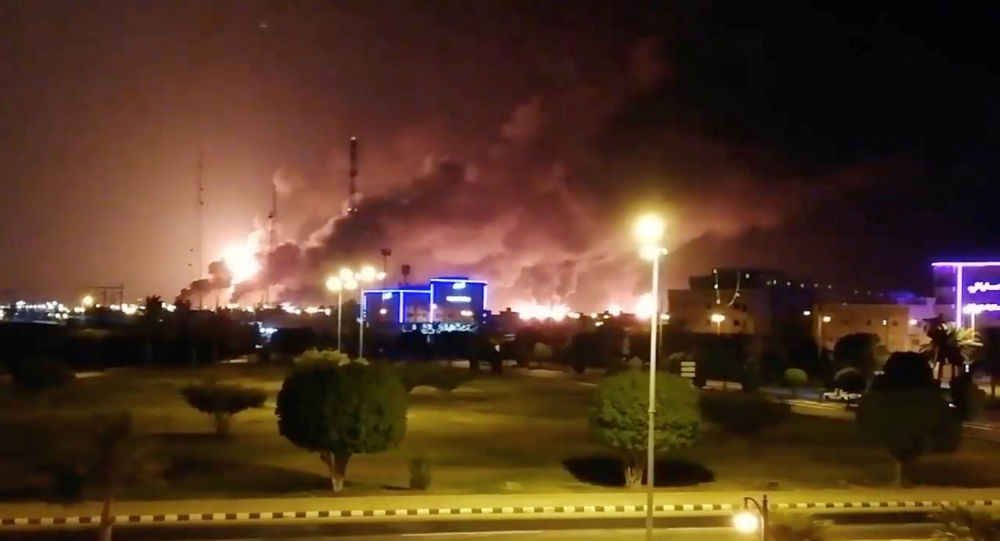In response to the recent US-Saudi economic escalation against Yemen, marked by the decision to relocate commercial banks from the capital, Sana'a, under Saudi sponsorship, Yemeni revolution leader Sayyid Abdul-Malik Badruddin al-Houthi issued a stern warning to the Saudi regime. He cautioned Riyadh against "pouring oil on the fire," emphasizing that even in the de-escalation state, Yemen still suffers from the war and siege, and such escalation would have severe and unavoidable repercussions. Despite this, Saudi Arabia, as usual, underestimated the gravity of the situation and proceeded with the escalation, only to face the most severe warnings this week, the likes of which have not been seen in over two years. Sayyid Al-Houthi reminded the Saudi enemy of the "eye for an eye" principle, a strategy that previously forced Riyadh to seek de-escalation. This time, however, the repercussions will be more significant due to new developments.
Sayyid Al-Houthi’s warnings, delivered in a speech marking the Islamic New Year, were direct, unprecedented, and clear since the truce announcement in April 2022. These warnings have sent shockwaves through the Saudi regime, which had wrongly assumed that Sana'a would be "restrained" by economic and humanitarian escalation due to its commitment to peace agreements and its preoccupation with supporting Gaza. Riyadh also misjudged that its claims of "American pressure" forcing it to delay peace efforts had been accepted by Sana'a, thereby absolving it of responsibility for any new escalation.
The Yemeni leader dispelled these misconceptions clearly, stating Yemen's readiness to face numerous challenges and affirming that their support for Gaza would not prevent a strong response to any escalation. He dared the Saudi regime to "try its luck" with American-backed escalation and announced retaliatory measures: targeting banks for banks, ports for ports, and airports for airports. Saudi Arabia has experienced these types of responses during previous years of conflict.
Contrary to Saudi Arabia's attempts to portray its stance as positive in recent times, Sayyid Al-Houthi clarified that Yemen's restraint during the de-escalation period was due to prioritizing support for the Palestinian people. Therefore, Yemeni patience with Saudi stalling had nothing to do with believing Riyadh's tricks regarding its commitment to peace. This is evidenced by the exhaustion of patience now and the clear announcement of readiness to return to broader and harsher escalation to secure Yemeni rights and respond to economic aggression.
Thus, it can be said that Sayyid Al-Houthi has stripped the Saudi regime of all illusions it held over the past two years regarding circumventing the consequences of its aggressive stance towards Yemen. He has thrown Riyadh into a frightening situation, not limited to the return of military escalation and targeting the Saudi economy (a major issue for Riyadh during years of aggression). This time, the escalation will be more intense and extensive, involving direct confrontation with the Zionist and American enemies, leading to decisive and punitive operations that Riyadh will not be able to overcome politically, economically, or militarily.
While Saudi Arabia has always sought evasive maneuvers to avoid escalating situations by using the "de-escalation" cover to negotiate and showcase minimal positive gestures laced with significant evasion and stubbornness, the recent warnings from Sayyid Al-Houthi leave no room for such games. Saudi Arabia now faces two choices: end its involvement in economic and humanitarian escalation or face a new round of escalation with terrifying possibilities, including unprecedented concentrated strikes on its vital and economic facilities. This puts Riyadh in a sensitive position against American directives pushing it towards escalation.
Saudi Arabia has tried to use the pretext of "American pressures" to distance itself from the ongoing suffering of the Yemeni people, holding the peace stick from the middle to continue targeting the Yemeni people behind the cover of mercenaries while evading the consequences of that targeting by claiming pressure. However, Sayyid Al-Houthi’s recent warnings clearly and decisively hold Saudi Arabia accountable for its choice to succumb to American desires. The current situation is a direct confrontation with the United States, leaving no room for excuses. Riyadh must either dissociate itself from the American front against Yemen or be considered part of that ignited front, with no third option available.







